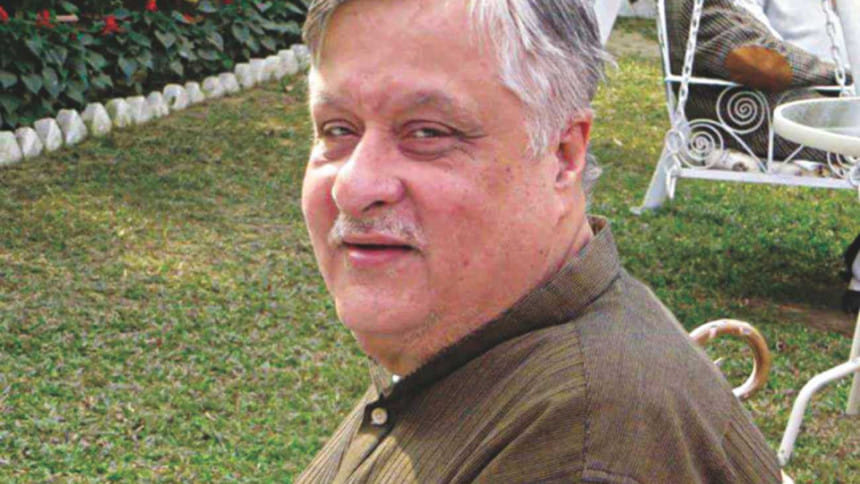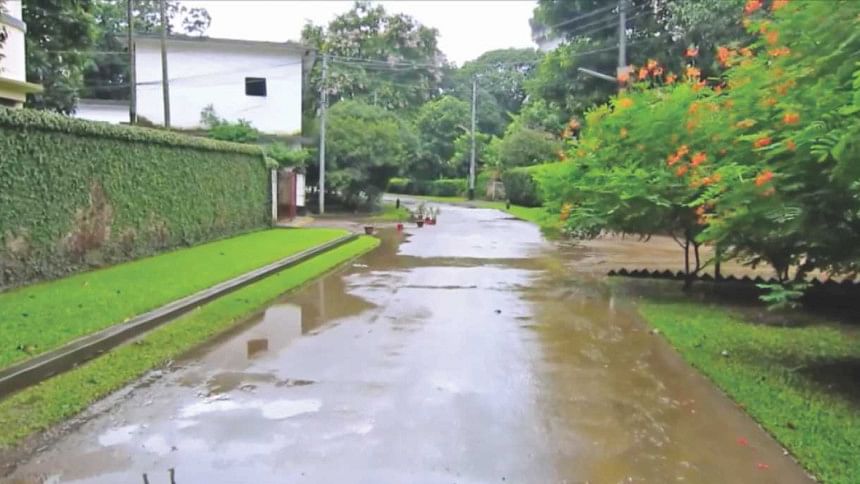A legacy worth remembering

Ispahani Colony is one the last remaining places of greenery, serenity, and natural abode in the middle of an increasingly congested, recklessly urbanised, poorly managed, and environmentally hazardous Dhaka city. From honest and efficient government officers to teachers of public universities, from competent bankers to well qualified professionals, the colony had a collection of some of the most well respected and cultured citizens of Dhaka.
The inhabitants of the colony have been equally complimented by the owners of the colony i.e. the Ispahani family, who have been as gracious and decent human beings as the people being leased out the houses and apartments within the colony. From the Late Mirza Ahmed Ispahani (popularly known as the Senior Ispahani) to his son the Late Sadri Ispahani to his grandsons – Behrouze, Salman, Sajid, Shakir, and Imran (who is mostly based in the UK), all have represented a face of a business house not so common in Bangladesh. A business family that is well educated, well mannered, accomplished with whom the relationship between the owners and tenants have been more like friends and family as opposed to landlords and lessee.
Many of us have spent a significantly large portion of our lives in this pristine location well hidden from the eyes of many who even do not know that such an enclave of tall trees and green fields, meadows and lawns lie in the heart of the city. When the Senior Ispahani and later Sadri Ispahani passed away, it was almost like the ending of two eras; eras which saw the difficulty and challenges faced by the largest industrial and business house of the country in the aftermath of the independence of Bangladesh, when everything was nationalised by the post-liberation government. Those days, jute and tea were the main export commodities of Bangladesh and the Ispahanis were the industry leaders in each field. During those tumultuous years, Senior Ispahani kept his calm, maintained his perseverance, and successfully faced the test of patience until the government slowly started denationalising, and the Ispahanis started getting back their business and industrial units. In that process, there were people, including my late father Syed Amir Khasru who was then serving as a Secretary to the government, who extended their support to Senior Ispahani, as bonds between the business community and civil servants those days were guided more by national interest and personal integrity as opposed to the prevalent culture of personal interest and unethical relationships.

Successive generations of the Ispahanis have run the business with the same ethical values and good business practices that were so consistently followed by Senior Ispahani and Sadri Ispahani. When the eighties onwards saw the rise of a new breed of entrepreneurs and businessmen who thrived more on shady deals and unscrupulous business practices fostered by corruption, brown envelopes, and speed money, the Ispahanis were among the few who persisted in their good old values of hard work, honest deals, and ethical transactions. In a business culture where loan defaulters, land grabbers, manpower agent cum exploiters of the poor, and commission and brokers have become the most powerful and influential business leaders, the Ispahanis are among the very few who still stand out as far as good business practices and ethical code of conduct are concerned.
Behrouze Ispahani was the social face of the Ispahani business house. A social and amiable person, he befriended almost everyone who came across him and was a warm-hearted and kind man. He was deeply concerned about the country in all spheres – politics, economy, business, sports, culture, etc. The people he helped run into thousands, and he did it with humility and grace with very few even knowing what kind of charity he was giving out and to whom. He was popular with people around him, from his immediate colleagues to the office staff whom he would always be the first to greet with a salam. For example, Sayed Hassan, one of the longest serving members of the senior management of the Ispahani house, was treated by Behrouze like a brother and not just as a colleague. I was told by Hassan bhai how from lunch to dinner, almost every meal was either shared or sent to his house by Behrouze. Zaheda, Behrouze Ispahani's wife, has done a remarkable job in managing the Islamia Eye Hospital which is probably one of the few, if not the only, hospitals in Dhaka that provides eye care to the poor and needy at affordable price. In fact, the Ispahanis are one those business houses who do genuine philanthropic work meant for the deprived and underprivileged as opposed to doing such work for either publicity, CSR compliance or political motives.
After Senior Ispahani and Sadri Ispahani, Behroze's involvement has been the longest in the business activities of the Ispahanis after Bangladesh came into being as an independent nation in 1971.
Behrouze was equally popular in the diplomatic community for his charming personality and social skills. He would not miss an opportunity to invite people to his home, and he and his wife Zaheda have been gracious host to so many people on so many occasions that it would be difficult for many to come to terms with the emptiness created by his sudden and premature departure. Although Behrouze moved out of Ispahani Colony some time ago, he strongly believed in the pristine values and refreshing environment that this unique place possesses, and the importance of preservation of the same at a time when Dhaka is being gobbled up by relentless, intricate mazes of countless apartment complexes. The pigeon holed structures that turn simple things like free space, clean air, play fields, green serenity, and open sky into rare commodities in this urban jungle that we live in. In a way, he has been saved from the ordeal of having to witness the transformation of the last remaining vestiges of sublime urban beauty of Dhaka being changed into columns and pillars of steel and concrete, and the crowd and noise that will replace the grace and silence that have been the hallmark of this place that used to reflect the values and spirit of the old school of the Ispahanis.
Behrouze led a full life free from any regret, he made lots of friends and admirers as evident in the outpouring of grief by people in the aftermath of his death. To that wonderful neighbour and the man who was approachable as well as kind and generous, we can only wish eternal peace. May the road ahead for him be as tranquil, serene, and blissful as has been the road to Ispahani Colony, which beholds so many fond memories and cherished moments for many of us. May God be with him in the land of no return.
The writer is a Professor at the Institute of Business Administration (IBA), University of Dhaka, and Chairman of the Institute for Policy, Advocacy, and Governance (IPAG).

 For all latest news, follow The Daily Star's Google News channel.
For all latest news, follow The Daily Star's Google News channel. 



Comments